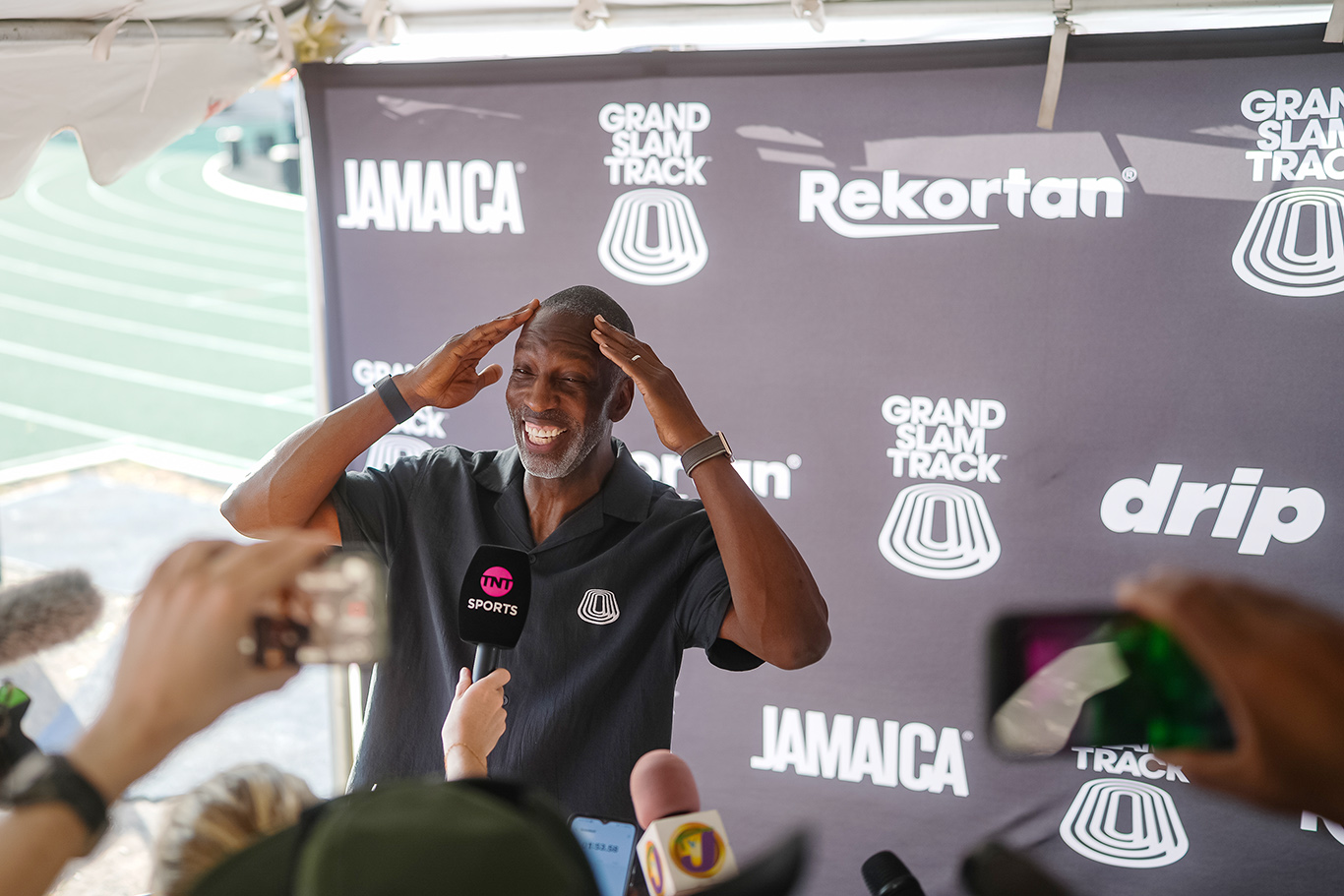A week after Grand Slam Track made its debut showcase in Kingston, Jamaica, fans of the sport have used the time to give the impressions — whether good or otherwise.
But Diamond League founder Patrick Magyar took his view of the Michael Johnson-backed league seemingly personal, as he posted a deeply critical roundup after the second day of the meet on April 5, where he labeled the league as a “flop.”
“What did we see? Boring, lifeless competitions, long stretches of nothing happening, and – perhaps most telling – a completely empty stadium,” Magyar posted on his social media account. “This in Kingston, the capital of one of the world’s greatest track and field nations.”
Magyar’s initial comment pointed out the low crowd turnout that could easily be seen during television broadcasts on the first of three days of competition at Kington’s National Stadium. The venue has a capacity of 35,000 and while attendance improved in the other two days of events, fan engagement could be chalked up as a low point of the meet.
“It took just one competition day for the much-hyped Grand Slam Track series to prove it’s not the future of track and field – it’s a flop,” he wrote. “In fact, ‘Grand Flop Track’ might be a more accurate name.”
The post also included a modified graphic of the Grand Slam Track logo that replaced “Slam” with “Flop.”
Magyar also took a job at the league’s track-only format, which drew a range of negative reactions from many field athletes who would be excluded from the Grand Slam Track out of the gate. Last year Johnson was adamant about putting his energy solely on focusing on track.
“I think I can save track. I don’t think I can save track and field,” he said in a BBC interview in November.
Johnson’s announcement of Grand Slam Track in early 2024 shifted the attention of the sport immediately and made subsequent waves when Sydney McLaughlin-Levrone was announced as the first athlete to join as a Racer — committing to all four meets.
The meet format features 48 Racers and 48 Challengers divided into race groups with all athletes competing twice during the three-day Slams.
But the biggest attraction of Johnson’s league was emphasis on the significantly high prize payouts Grand Slam Track athletes would receive, with race group winners taking home $100,000 per meet. Eighth place finishers get $10,000.
Magyar’s post took a jab at Grand Slam Track’s prize structure despite Diamond League winners only receiving $10,000 and up to $30,000 at the season final.
“That’s the headline selling point: Finally, athletes will be paid fairly,” Magyar said. “Sure – if you eliminate half the sport.”
He added, “But do fans really want a version of athletics without jumpers and throwers? Are we willing to drop legends like Ryan Crouser, Mondo Duplantis, Neeraj Chopra, Hamish Kerr, Barshim, Tamberi, Tentóglou, Mahuchikh, Olyslagers, Patterson, Valarie Allman, Malaika Mihambo, Yulimar Rojas – just to fit someone’s narrow idea of what sells?”
Meanwhile, Magyar’s post continued with critiques of the league and specific references to Johnson — in particular — that seemingly stretch back nearly 30 years.
He claims that he “threw up behind the grandstand” at the 1996 Olympics in Atlanta after Johnson broke the world record in the men’s 200m final and Johnson’s agent demanded high appearance fees for Weltklasse Zürich — then part of IAAF Golden League, the Diamond League predecessor.
At the time, Magyar was in charge of athlete recruitment and claims Johnson refused to accept compensation less than Carl Lewis.
“After Atlanta, the bargaining began,” Magyar wrote. “Johnson demanded astronomical appearance fees — sums previously reserved only for legends like Carl Lewis, who won his fourth long jump gold in 1996. In every negotiation with his agent, Bradley Hunt, it became clear: Johnson wouldn’t accept anything less than Lewis.”
Magyar would later help start the Diamond League in 2010 after replacing the IAAF Golden League, which ended in 2009. His involvement with Diamond League ended in 2017.
He ended his post with comments that continued to target Johnson, as comments on his remarks were divided among those were praised his harsh critique, while others expressed disappointment in Magyar.
Still, he remained firm on standing by his statement.
“If you disrespect half the track & field family… If it’s more about your ego than the sport… If you believe money alone rules athletics…,” he said.
“Then what you create is not a vision. You create a Grand Flop.”







